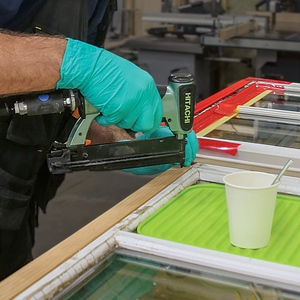This is all about protection of a detailed bid. But let me say up front that we work in a competitive market, and that no one, absolutely no one, will pay for a proposal.
We have found that in delivering a bid, it must be done in a scheduled, face to face meeting with the client.
We bring all the drawings we have prepared, a complete scope writeup, material specifications, etc., and make a complete presentation.
A lump sum firm price is offered, with a schedule of payments, plus a schedule for the work.
We explain that a contract will be prepared upon acceptance of the bid, and that the contract will include all the details of scope, specifications, allowances, payment terms, and job schedule, as we have presented in the meeting. We give them a copy of a blank contract, which includes all the boilerplate, but no job specifics.
Payment terms are a good-faith deposit at signing of contract, then an initial payment at job start time, plus progress payments that keep us ahead of any financing needs.
If the client does not want to proceed right there, but insists on “time to think it over,” we explain that the good faith deposit is required right then and there to hold a schedule slot, and that we will allow a 48-hour time for a decision. We’ll return the deposit check if there is a “no.”
If they won’t agree to the deposit, we offer them our best wishes, and leave, first explaining that any reconsideration will affect both price and schedule.
In no case will we leave the client with any copies of the materials we have presented in the bid meeting, other than the verbal price we have quoted, plus the blank contract. We feel that it is not in our interest to leave the client with materials they can use to solicit competing bids.
We use a modified versions of the contracts included in the JLC “Contractors Legal Kit.”
If there is a “yes,” we will return with the completed and job-specific contract, get signatures, and proceed.
What should we do differently?




















Replies
ask bill or joe?
half of good living is staying out of bad situations
That tavern thread was meant to compare the two super-charismatic personages of Messrs. Bill Clinton and Joseph Smith, Jun.
With either of them delivering my bids, we would get a 100 percent close-at-meeting rate.
So what was the point of that thread?
Jon Blakemore RappahannockINC.com Fredericksburg, VA
Point?
We don't need no stinkin' points!
be a badge
half of good living is staying out of bad situations
LMAO
Welcome to the Taunton University of Knowledge FHB Campus at Breaktime. where ... Excellence is its own reward!
My first question is why do you want to change your procedure? If this is working for you, why change? Or do you feel that you are missing some clients and want to close on more jobs?
The one thing that seems a little "pressured" to me is asking the client to write a check on the spot and then only giving 48 hours to change their mind and with the possibility of increased costs if they should want to change back again.
I don't know the size of the jobs you typically do, but if it's a large job, I could see most of my clients wanting more than 48 hours to go through a proposal, talk to their spouse, friends, etc. and generally think it over.
Plus, most of my customers would want some sort of proposal in hand so they could compare at their leisure competing bids. However, I understand not wanting to let out proprietary drawings and specs that they could pass on to your competitors.
For me it seems to work well that I give a detailed proposal to a client and then let them go through it at their leisure (usually a week or less) and then I make myself available to answer any questions they have.
Again, I don't know the particulars of your situation so I don't know if I can give much advice, but if you have an established procedure for proposals and it is working for you, why change?
brad
Gene, I think your process is sound and probably appropriate for you if you're dealing with architect-designed new homes and a semi-formal bidding process ("we're getting three bids").
My own process is slightly different. Personally I cannot be hard-sold ("we need a deposit now to hold a slot") and I'm always going to take time to think it over. So, I assume other people are like me and I do my selling in the initial meeting, to the extent possible. That meeting is where we go over the scope of the job in detail and I lay out the approach we'll use and the important points, whether they're about waterproofing, surface protection, matching finishes, schedule, etc.
I write up a fairly detailed scope of work and submit that as a proposal with a price. Lately, I present that in person about 50% of the time. The rest of the time I mail, email, or fax it. I know this goes against the gospel but I get a high percentage of the jobs that I want, and presenting in person does not seem to correlate to getting the job. Rather, there is a set of circumstances that make it likely I'll be hired--the personality of the owner, how close they are to starting, their experience with other contractors, things like that. People who want low-priced work, people who want corners cut, people who aren't staying in the house long, people who have no clue about construction quality, people who don't have enough dough.... those people are usually identifiable in the early going and I don't generally want the job.
There is a definite risk of 'tipping your hand' when you turn in a written proposal. The owner can take it and give it to the favored contractor, or to their brother in law, whoever. They can waste your time and skin you for some free consulting. I don't know of any way to absolutely prevent this. I have considered letting people read the proposal at the presentation meeting, then taking it home with me, but that's going to make me seem edgy and make it harder to see how solid my proposal is. No point in that.
If there is any answer it's in pre-qualifying people up front. How many contractors are you talking to? Who recommended me? When does the project start? Do you have plans and a permit already? What's your budget for the job? How long are you going to live in the house? Have you built or remodelled before and what was your experience with that contractor? What is your criteria for selecting a contractor this time? Do you prefer a cash deal?
The best ones, of course, are where they are not talking to anyone else. I'm getting more and more of those.
"f there is any answer it's in pre-qualifying people up front. "two for two!
Welcome to the Taunton University of Knowledge FHB Campus at Breaktime. where ... Excellence is its own reward!
Gene, I see your concern aboiut unscrupulous clients using your hard work to solict cheaper bids from competitors who are too lazy to prepare details and contract.
but I also question how I would ever allow myself to get that far along - delivering a detailed bid - witha potential client that I distrusted that much...
If this is a "bid", I see no reason to detail the cost breakdown and would only provide de3scription of the scope of work and a total dollar figure.
The 48hrs strikes me as high pressure, cf 72hrs allowed by federal laws for sales contracts in their house.
If you can't get paid for proposal prep, I don't think you would be able to collect a deposit either, from an uncertain or unscrupulous client. It is quite easy to state the simple fact that materials prices are jumping daily - the world's steel manufactrurers have just made announceemnt of a 19% price increase. both Gold and Lead have increased in price abouit 340% over the last few years - and that bids are only valid for a limited time period. Any intelligent person with the wherewithal to build a house is going to understand that.
another way to avoid your percieved threat to your prep work and the possibility of it being stolen, is to ask at the beginning, "Who else is bidding on this job?"
If you know your competition, you know whether to decline the opportunity, or you can set things up so bids are professionally openned at one time like public ventures do. Not that I favour any of these options.
Welcome to the
Taunton University of Knowledge FHB Campus at Breaktime.
where ...
Excellence is its own reward!
Sounds good, but I would offer two changes:
Leave them with a typed proposal on letterhead, with not much more than "Build per plans for $xxx." That way there is no chance they would mis-remember the verbal price you quoted.
Allow a little more than 48 hours. 72 sounds about right.
"When asked if you can do something, tell'em "Why certainly I can", then get busy and find a way to do it." T. Roosevelt